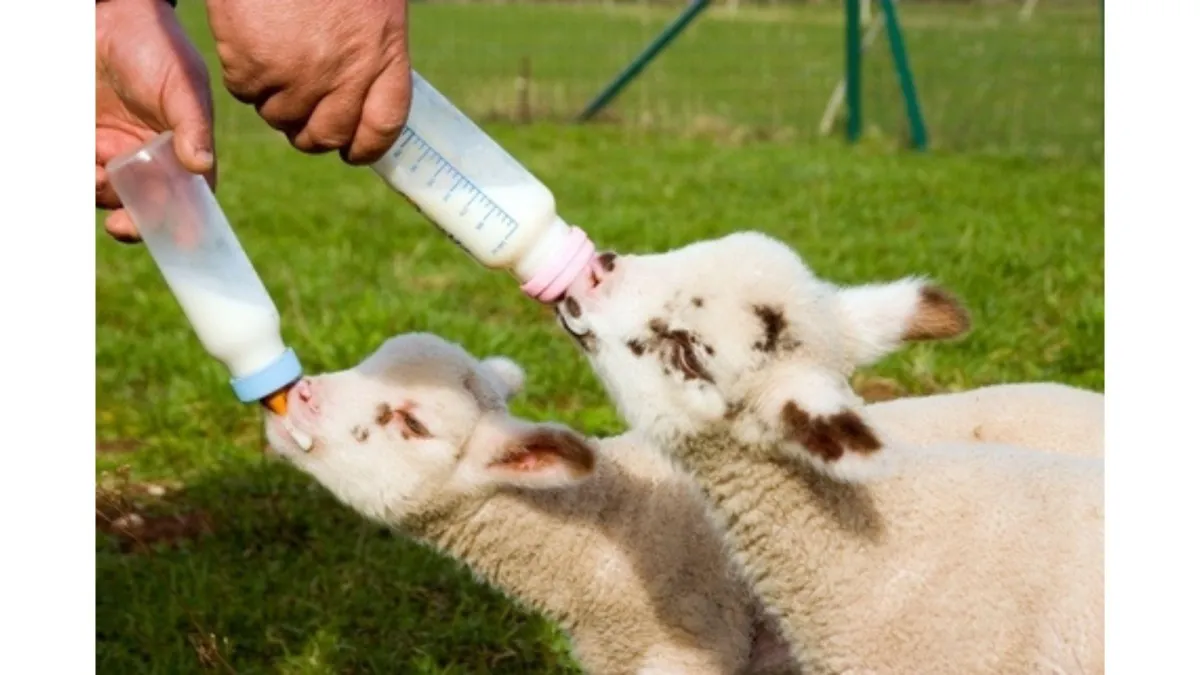
Hand Rearing Lambs, Kids and Calves
It can be tempting to adopt an orphan lamb, goat kid, or very young calf to raise by hand. They’re often available at a low cost, and they’re undeniably cute, especially for children. But these young animals are highly vulnerable and require constant care, good nutrition, and shelter. For the first six weeks, there are no days off.
Why Colostrum Matters
Colostrum is essential for survival in the first days of life. It provides the antibodies and nutrients needed to fight off infection. Lambs, kids, and calves that do not receive adequate colostrum are far more likely to become sick and die.
Colostrum feeding guidelines:
A 3 kg lamb needs about 600 ml per day in small 150 ml feeds.
A 5 kg lamb needs around 1500 ml per day in 250 ml feeds.
A 40 kg calf needs at least 1 litre in the first 6 hours, and 4 litres within 24 hours.
Feed colostrum as early as possible, ideally within 6 hours of birth, and certainly within 24. Colostrum can be collected from ewes, does, or cows within 24 hours of giving birth, frozen for up to a year, and used fresh within 24 hours if refrigerated.
Warm the milk to body temperature and use a bottle for feeding. Species-specific colostrum is ideal, but goat colostrum can be used for lambs if needed.
Feeding Good Quality Milk
After four days of colostrum, you can begin using a suitable milk substitute. Commercial powdered milk specific to species is recommended and available from most rural suppliers.
Basic milk feeding tips:
Cows’ milk can be used for lambs with slight dilution and sweetening, but only short term.
Milk must be warmed to body temperature.
Feed smaller quantities more frequently for very young animals to avoid digestive upsets.
Example feeding schedule:
Small lambs: 150 ml, six times daily
Larger lambs: 250 ml, four times daily, increasing to 500 ml twice a day by 3 to 4 weeks old
Clean, fresh drinking water should always be available.
Hygiene Is Essential
All feeding equipment, including bottles, teats, and buckets, must be cleaned thoroughly between feeds to prevent disease. Rinse well after using a dilute bleach solution or other disinfectant.
Introduce Hay and Grass Early
From about one week of age, offer:
Fresh, clean hay or barley straw
Access to good pasture
Calf starter pellets (for calves only)
This helps the rumen develop normally.
Important: Supervise young animals near gardens. Many ornamental plants, such as rhododendrons, are toxic and commonly cause accidental deaths in pet livestock.
For more on managing digestive issues, see our article on Scours in Hand-Reared Animals.

